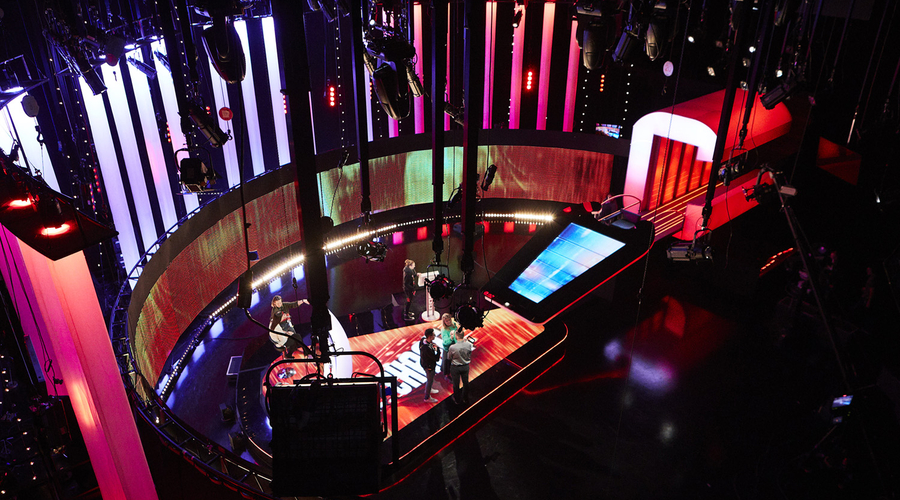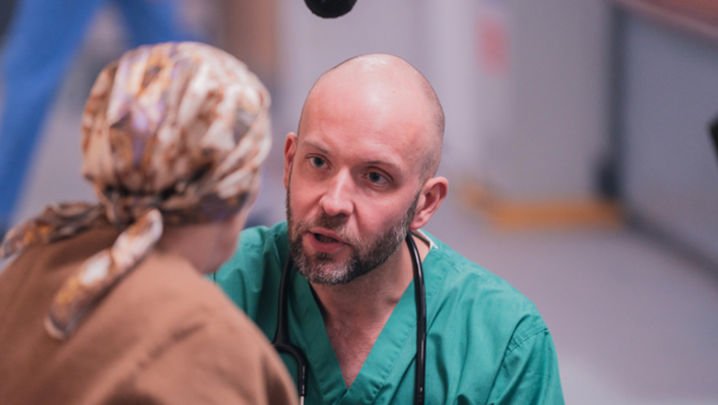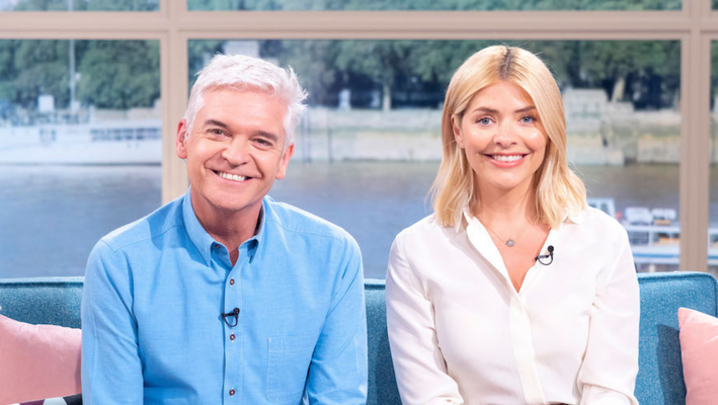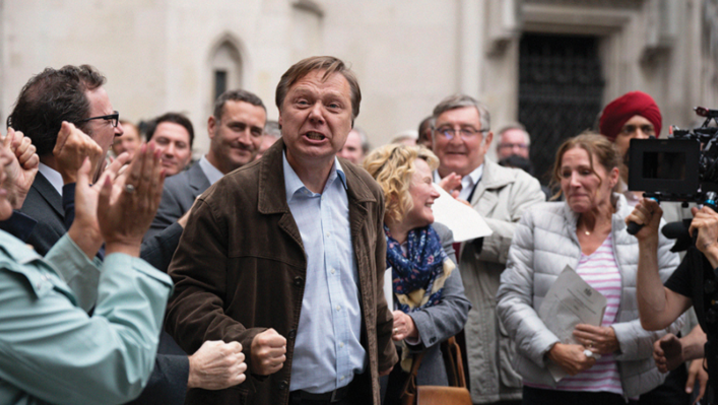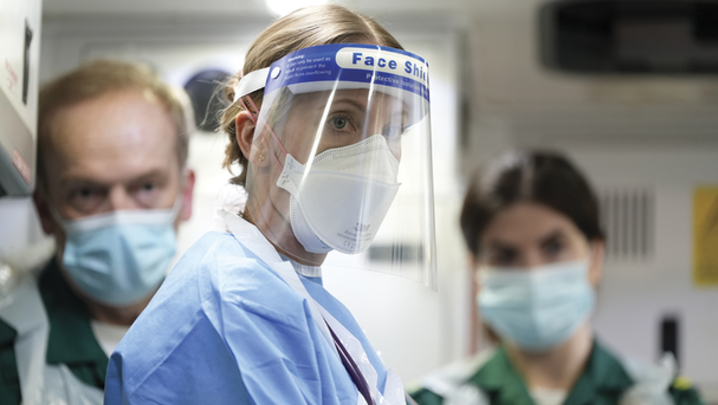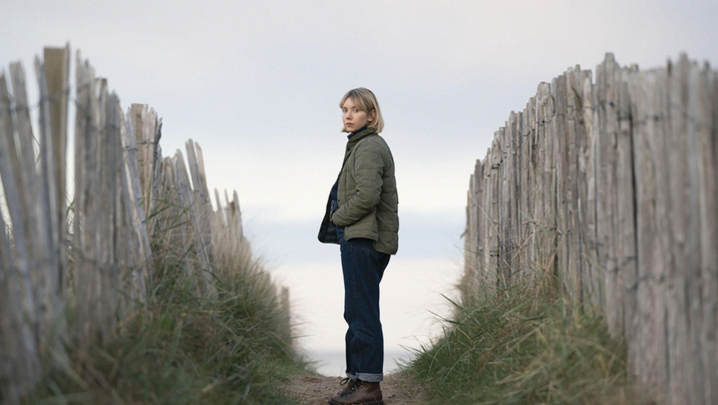Caroline Sale is the line producer of ITV’s hugely popular quiz shows hosted by Bradley Walsh, The Chase, Celebrity Chase and Beat the Chasers. She works for Potato TV, which is part of ITV Studios.
What does the job involve?
I oversee the production budget and scheduling, as well as the day-to-day aspects of a production. This involves ensuring that filming is done safely, on time and on budget. I’m also the go-between, between the crew and the producers.
How do you differ from a producer?
A producer works on the editorial side; a line producer is on the production side of a TV show.
How did you get your break in telly?
I started with work experience, thanks to a family friend in the industry, and then landed a job as a production
co-ordinator at Endemol Shine UK.
I worked on a variety of shows across entertainment, factual entertainment and reality, including live shows, both in studios and on location.
I wanted to gain as much experience as possible so, when I progressed to production management, I had a good all-round view of TV.
How did you become a line producer?
I became a line producer four years ago, starting out on Beat the Chasers. Working your way up through the production management route, from secretary to co-ordinator to manager to line producer is the normal way to go.
What comes next?
Ultimately, head of production.
Where do you work?
Working on The Chase, I’m in the studio as much as the office. We film three daytime shows – two shows a day if it’s Celebrity Chase or Beat the Chasers. It keeps me busy.
When are you brought on to a production?
At the very beginning, to find a studio or location, bring the heads of department on board and work with the producers to build a team. I remain there, through post-production, until the delivery of the programme at the end.
What makes a good line producer?
You need to be calm under pressure, possess good communication skills, have the ability to work collaboratively and be able to multitask. A sense of humour helps.

What are the job’s biggest challenges?
Marrying the editorial ambition of a show with the actual budget you have. It’s harder on a new show, when you’re starting from scratch.
We made Cannonball for ITV, which was shot abroad – the minute you go abroad, your budget shrinks because you have to get everyone out of the country and on to the set. We also wanted to build huge structures and inflatable games on water, and then throw people down them – the health and safety demands on that show were incredible.
Is it becoming less acceptable to film abroad now for environmental reasons?
Yes – if we were making Cannonball again, we would be looking to use a local team, rather than flying crew out. We try not to use any internal flights on UK shows now – we get people across the country in a much more environmentally friendly way.
Who do you work closely with?
A show’s executive producers; I work with two particularly talented ones on The Chase and Ninja Warrior UK: Race for Glory, Potato TV’s Martin Scott and Helen Tumbridge. They work on the creative side – I make their ideas work logistically. I also work closely with the production team who are crucial to any production.
Working with the head of production is a big part of the job, keeping them up to date with the schedules, costings and raising any production red flags. A line producer and their production team are often the first on site and the last off.
What are the best and worst parts of the job?
Getting from an empty studio to a huge, built set, and the first day of filming when you see everyone’s hard work come to fruition. There are no worst parts – I love the shows I work on. The Chase is my all-time favourite: a family show made by a family.
What advice would you give to someone wanting to be a line producer?
You don’t need any particular qualifications or an accounting background, but you do need strong organisational skills, as well as passion, drive and perseverance.
You learn a lot of the job as you work your way up the ladder. My advice to someone starting out would be to do as many different roles as you can – through work experience and as a runner – so you learn how TV works.
As a line producer, you are an all-rounder, and you have to understand what people do in the studio and why they do it.
Is there a shortage of line producers?
The industry is booming and there’s a huge shortage of production staff in general. People are moving up the ladder a lot quicker these days.
Have there been other big changes since you started?
Studio technology has developed hugely – you have to move with the times as a line producer. Every new show you do teaches you something new.
Does it help to specialise in one genre?
You can move around – early in my career, I was doing all sorts of different shows, such as MasterChef, Big Brother, Bad Lads Army, The Cube and The Supersizers Eat….
In fact, it’s very useful to work across the factual and entertainment genre – that’s how you learn the job. It would be more difficult to move into scripted, where the role of a line producer is slightly different, but, if you persevered, you could make that leap.
What other types of TV series would you like to work on?
I’d love to do live telly again – years ago, I worked on Channel 4’s T4 youth slot. Live TV is very stressful but, once it’s done, it’s done. There’s no going back.
Caroline Sale was interviewed by Matthew Bell.

